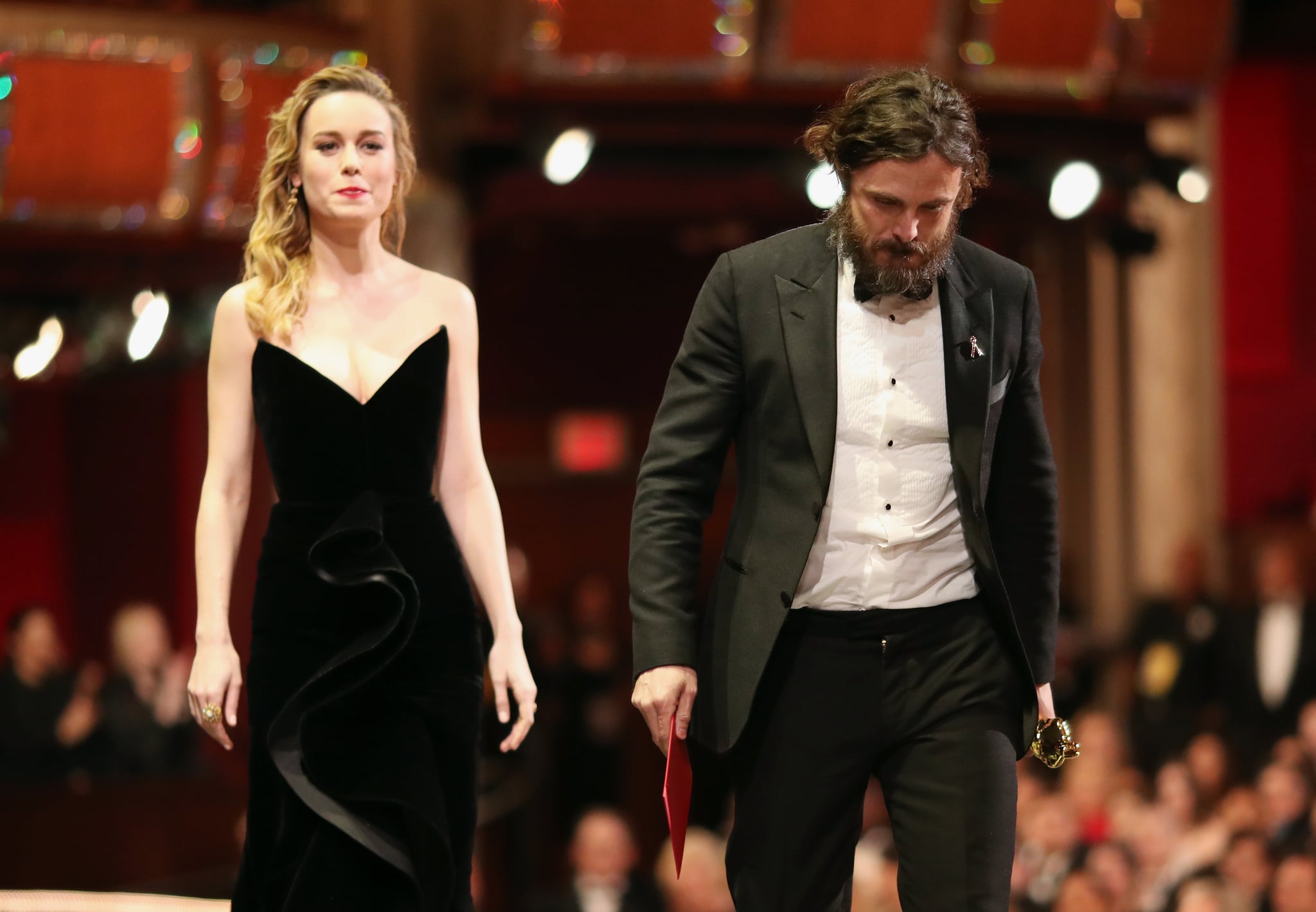
I'm a huge fan of the Oscars. They may be considered a pretentious, Hollywood-pleasing lovefest, but they're my pretentious Hollywood-pleasing lovefest. The 89th Academy Awards were no exception. My eyes were glued to the flat screen in my friend's apartment while squished on the couch between strangers and encouraging people to save any unrelated conversation until the commercial breaks. But when it came time to award the best actor, I sunk back into my seat hoping the couch cushions would swallow me whole. For me, this moment was not a cause for celebration.
"I loved Manchester by the Sea; it was brilliant. I hope Casey Affleck wins," said the man sitting next to me, with confidence in his choice. I responded with a small smile that probably resembled a grimace. While he held his breath for Affleck's win, I held mine for the outcome of what Affleck's win would mean: another powerful man accused of harming a woman receives an award.
Allegations of harassment [1] against Affleck have resurfaced over the past few months, as his performance in Manchester received critical acclaim. In 2010, both a female cinematographer and a producer of the film I'm Still Here filed lawsuits against Affleck alleging separate accounts of sexual harassment during the filming period. The issues were eventually settled out of court, and Affleck has brushed off the accusations, telling Variety [2] in a 2016 interview, "Sometimes it doesn't matter how you respond. . . . I guess people think if you're well-known, it's perfectly fine to say anything you want."
To me, the shift from last year's Oscars is so stark it's almost heartbreaking. In 2016, the award show highlighted the celebration of victims of assault, with Lady Gaga's moving performance of "Till It Happens To You." Men and women, powerful survivors of assault and harassment, stood on stage and held hands in solidarity as the tearful audience gave them a standing ovation.
This year, Affleck received his award from Brie Larson, who won best actress in 2016 for her portrayal of a woman raped and kidnapped in Room and is an advocate for sexual assault victims. She stood off to the side, not clapping [3]. Whether her decision to stand solemnly was intentional or not, it spoke volumes.
"Seeing a man accused of sexual harassment accept arguably the biggest award in Hollywood made my skin crawl."
It was no surprise Affleck took home the Oscar, after he swept similar categories throughout award show season. I saw Manchester by the Sea before I was aware of the allegations made against him and was impressed by his stirring performance. However, Affleck's nomination and eventual win is part of a bigger systemic issue in Hollywood and American culture. Seeing a man accused of sexual harassment accept arguably the biggest award in Hollywood made my skin crawl. It's a reminder that for the sake of success, certain things can and will be disregarded.
Affleck is not the only man in a powerful position whose alleged actions have been overlooked for the sake of achievement. Take, for example, another Oscar attendee, Mel Gibson, who was shunned by Hollywood society for the last eight years, part of which was a result of assault claims from his ex-wife [4] and his infamous comments toward her. Gibson was nominated this year for best director. Woody Allen was accused of assaulting his adopted daughter. He was given a Lifetime Achievement Award in 2014. Donald Trump admitted to grabbing women by the p*ssy and has been accused of assault by multiple women. He now holds the most prestigious role in our nation's government.
The issue is not that these powerful individuals are deemed completely "infallible," but that their mistakes don't matter because they are talented or famous. They have performed great work and so their traditionally inexcusable acts become acceptable. This example of dangerous favoritism may seem to only affect the elite, but the impact of their example can trickle down much further.
I've never seen the man who assaulted me accept an award. His success has never been broadcast for millions (and me) to see. He's never advanced toward a stage, while I remember his unwanted advances towards me. But I see him when other powerful men, accused of assault, are celebrated. I hear him when people accuse these women of lying or seeking out their own fame and attention.
"While he may have the microphone, you have the words worth hearing."
I can't speak for all survivors of harassment or assault, nor would I want to. However, I know firsthand the pain of never seeing a perpetrator brought to justice. My concern rests with those who will refrain from speaking out because they believe that their voice does not matter, who may be afraid their "accusations" won't be heard. When an individual does come forward, I consider it an act of bravery. According to the Rape, Abuse, and Incest National Network [5], about 66 percent of sexual assaults are not reported to the police. I see a woman (or man) who actively seeks justice for the havoc wreaked on his or her mind or body as courageous.
I hope through all this, survivors will keep raising their voices, because while he may have the microphone, you have the words worth hearing.